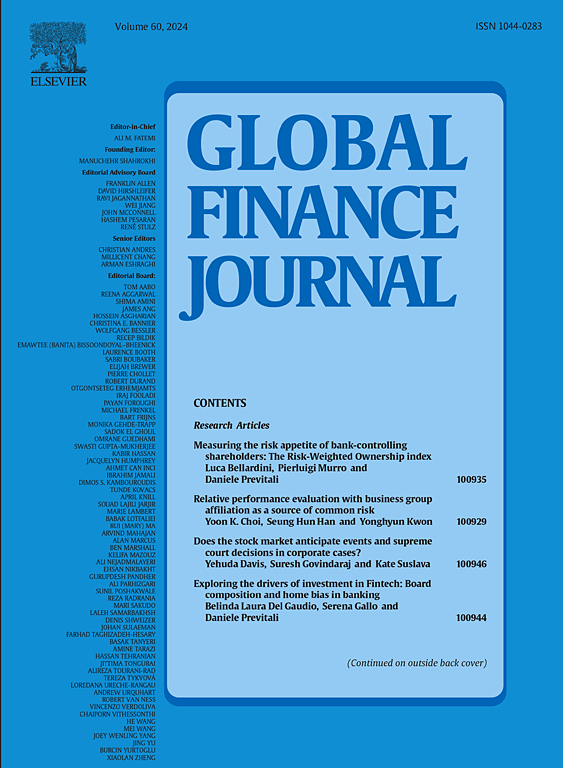Supply chain contagion effects of negative CSR events: A stock market reaction perspective
IF 5.5
2区 经济学
Q1 BUSINESS, FINANCE
引用次数: 0
Abstract
Negative corporate social responsibility (CSR) events substantially expose supply chains to risk. Understanding the effects of such events on suppliers and customers is crucial for strengthening the resilience of supply chain systems. Using a sample of Chinese A-share listed companies from 2016 to 2021, we employ the event study method to demonstrate that negative CSR events create a contagion effect in supply chains. Such contagion effect is asymmetric, affecting the capital market performance of customers more negatively than it does that of suppliers. Further analysis indicates that both the closeness of supply chain relationships and the level of economic policy uncertainty reinforce the contagion effect. The mechanism analysis suggests that the contagion effect originates from the damaged reputation of suppliers or customers and the reduction in shared investment value. In addition, the contagion effect is stronger when the core company is nonstate-owned and has a lower social responsibility score. These findings contribute to the understanding of CSR contagion effects from the perspective of supply chain relationships. Meanwhile, our study highlights that companies can focus on CSR events to strengthen their supply chain CSR management and improve the overall security and stability of supply chain systems.
负面企业社会责任事件的供应链传染效应:股票市场反应视角
负面的企业社会责任(CSR)事件实质上暴露了供应链的风险。了解此类事件对供应商和客户的影响对于加强供应链系统的弹性至关重要。本文以2016 - 2021年中国a股上市公司为样本,运用事件研究方法,论证了企业社会责任负面事件在供应链中产生传染效应。这种传染效应是不对称的,对客户资本市场绩效的负面影响大于对供应商资本市场绩效的负面影响。进一步分析表明,供应链关系的密切程度和经济政策的不确定性水平都强化了传染效应。机制分析表明,传染效应源于供应商或客户声誉受损和共同投资价值减少。此外,当核心企业是非国有企业且社会责任得分较低时,传染效应更强。这些发现有助于从供应链关系的角度理解企业社会责任的传染效应。同时,我们的研究强调企业可以通过关注CSR事件来加强供应链CSR管理,提高供应链系统的整体安全性和稳定性。
本文章由计算机程序翻译,如有差异,请以英文原文为准。
求助全文
约1分钟内获得全文
求助全文
来源期刊

Global Finance Journal
BUSINESS, FINANCE-
CiteScore
7.30
自引率
13.50%
发文量
106
审稿时长
53 days
期刊介绍:
Global Finance Journal provides a forum for the exchange of ideas and techniques among academicians and practitioners and, thereby, advances applied research in global financial management. Global Finance Journal publishes original, creative, scholarly research that integrates theory and practice and addresses a readership in both business and academia. Articles reflecting pragmatic research are sought in areas such as financial management, investment, banking and financial services, accounting, and taxation. Global Finance Journal welcomes contributions from scholars in both the business and academic community and encourages collaborative research from this broad base worldwide.
 求助内容:
求助内容: 应助结果提醒方式:
应助结果提醒方式:


